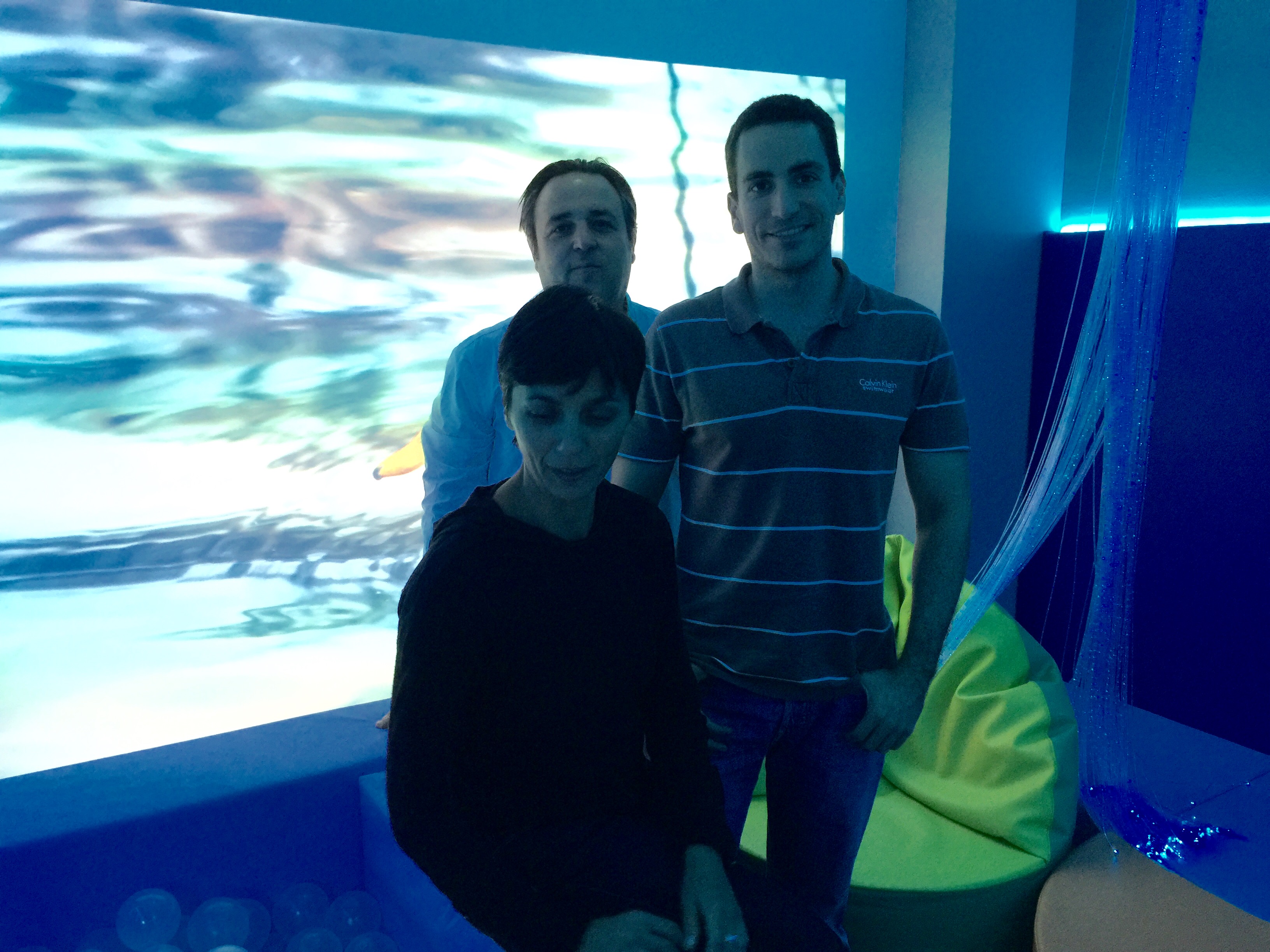AIDE Project presentation at ERF2016
#aideproject was presented at #ERF2016 in Ljubljana March 23th in the Healthcare Topic Group meeting @eu_Robotics
#aideproject was presented at #ERF2016 in Ljubljana March 23th in the Healthcare Topic Group meeting @eu_Robotics
Premeeting of #aideproject consortium yesterday in Luxembourg preparing 1st Review of the project
First review of #aideproject held yesterday in Luxembourg.
Here, the prototype of a wearable and wireless system for biosignal processing from the #aideproject review meeting.
Some of the adapted and used devices of the prototype are from @ShimmerSensing and @Neuroelectrics.
Coordination meeting of #aideproject held in January 26th in @UPV with @labhuman and @LabLENI
Presenting the experimental scenarios of AIDE Project in the consortium meeting.
Successful meeting of AIDE Project held last week in University Hospital of Tübingen.
Here all the partners of AIDE Project who attended the consortium meeting in Tübingen.
Picture with the prototype of a wearable and wireless system for biosignal recording and processing of AIDE Project.
On October 22th UNICAMPUS, SSSA, GLIC and INAIL had a technical meeting of the AIDE project in Rome. Main discussion points were the system architecture and the integration of robotic means on a motorized wheelchair.
Exploring the ways of using BJLive! systems inside AIDE project framework
– Environmental control system: with BJ System remote controllers, that combine IR and RF, disabled people can control most household items such as the TV, stereo, lights, doors, beds, blinds and so on.

“The gift of assistance” Navigating everyday life is something most people take for granted, but there are those who need assistance with basic tasks. The AIDE project works to bring independence to people with disabilities.
The dedicated agenda was:
Welcome (UMH)- Nicolás García Aracil
Presentation of each partner (5 minutes per partner)
General Review of Technical Work Program (UMH)
Review of Technical Work Program by the relevant WP Leaders:
WP2: Requirements And System Specifications (UMH)
WP3: Modular Architecture For The Multimodal Interface (Università Campus Biomedico di Roma)
WP4: Multimodal Sensory Processing For The Estimation Of User’s Intention And Affective State (EKUT)
WP5: User Behaviour Detection And Context Factor Analysis (UPV)
WP6: Shared Human-Machine Control Of Assistive Devices (SSSA)
WP7: System Integration (UMH)
WP8: Experimental Validation In Different Application Scenarios (CEDAR)
Conclusions
During this meeting, a general review of the technical work program was performed. The meeting has been mainly focused in the work program of the first year.